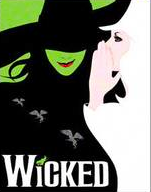 Years from now, when the musical Wicked is eventually made available for school and amateur productions, will some high school administrator declare it inappropriate? After all, among its many plot strands is the story of (spoiler alert) the manipulative Madame Morrible, a school headmistress who schemes against those in Oz who don’t conform precisely to her standards, be they green girl or anthropomorphic animal. It’s a terrible portrait of pedagogy gone wrong and surely doesn’t foster the collaborative, supportive relationships that school leaders must seek with each successive generation of students, as well as with their faculty and staff. From that perspective, it’s seditious.
Years from now, when the musical Wicked is eventually made available for school and amateur productions, will some high school administrator declare it inappropriate? After all, among its many plot strands is the story of (spoiler alert) the manipulative Madame Morrible, a school headmistress who schemes against those in Oz who don’t conform precisely to her standards, be they green girl or anthropomorphic animal. It’s a terrible portrait of pedagogy gone wrong and surely doesn’t foster the collaborative, supportive relationships that school leaders must seek with each successive generation of students, as well as with their faculty and staff. From that perspective, it’s seditious.
I’m reminded of this element of Stephen Schwartz and Winnie Holtzman’s massively popular musical as I consider the challenges to high school theatre that I’ve read about, heard about and involved myself in. Recently, I was engaged to deliver the opening keynote at the Educational Theatre Association’s (EdTA) annual conference for high school teachers. During the question and answer session that followed, one attendee asked the others how many had had shows turned down when they sought approval for them. Roughly a quarter of those in the room raised their hands. In follow-up, they were asked how many had wanted to do certain shows, but didn’t even try because they were sure they couldn’t get approval. Virtually every teacher raised their hand.
Because I don’t believe that these teachers had all been contemplating Oh! Calcutta!, I find myself wondering about their internal decision-making, their self-censorship. Surely they weren’t considering shows which would be blatantly inappropriate in a school setting, so what are those shows that they thought would be good for their students, but which they didn’t even dare raise as a possibility? That might make for an interesting survey in itself.
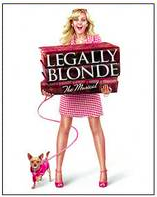 Of course, what’s acceptable to the powers that be at one school, in one town, may be considered problematic in another. Earlier this year in New Hampshire, Sweeney Todd was canceled at Timberlane High School (since reversed) even as another school just a few towns away readied their production of the same show. In 2012, Sonja Hansen lost her position directing shows at Loveland High in Ohio after her production of Legally Blonde was declared inappropriate, yet according to the EdTA’s annual survey, its was the fourth most popular musical in high schools nationally.
Of course, what’s acceptable to the powers that be at one school, in one town, may be considered problematic in another. Earlier this year in New Hampshire, Sweeney Todd was canceled at Timberlane High School (since reversed) even as another school just a few towns away readied their production of the same show. In 2012, Sonja Hansen lost her position directing shows at Loveland High in Ohio after her production of Legally Blonde was declared inappropriate, yet according to the EdTA’s annual survey, its was the fourth most popular musical in high schools nationally.
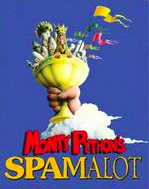 So I’m very interested in the new “Public Performance Policy” that has been put into place at the Junior/Senior High in South Williamsport PA, where a production of Spamalot has been canceled by the principal for reasons that remain unclear. The drama director Dawn Burch asserts that Principal Jesse Smith stated, in an e-mail, that the show’s gay content was a factor. Smith himself has been silent since this story broke, and while the school administration has taken exception to one element of the first report about the issue (since corrected), it has yet to produce the e-mail in question to clear things up. Two “Right To Know” requests have been filed seeking that e-mail and related documents; one of those requests is mine.
So I’m very interested in the new “Public Performance Policy” that has been put into place at the Junior/Senior High in South Williamsport PA, where a production of Spamalot has been canceled by the principal for reasons that remain unclear. The drama director Dawn Burch asserts that Principal Jesse Smith stated, in an e-mail, that the show’s gay content was a factor. Smith himself has been silent since this story broke, and while the school administration has taken exception to one element of the first report about the issue (since corrected), it has yet to produce the e-mail in question to clear things up. Two “Right To Know” requests have been filed seeking that e-mail and related documents; one of those requests is mine.
The timing of the Public Performance Policy, revealed last night at a meeting for the school board, is certainly no coincidence, coming between the initial assertions of anti-gay bias and the release of clarifying materials. As read by the school superintendent, Dr. Mark Stamm, it states:
General Guidelines: Public performances serve as a capstone project for students to showcase their dedication, determination, and talents for their peers and for their families. Performances must be age appropriate for participating students and audiences. Material that is generally considered offensive, suggestive, or demeaning based on race, religion, age, gender, or sexual orientation is not appropriate for school performances.
The first sentence of the policy, describing “showcasing dedication, determination, and talents,” is nicely affirmative – until one notices that there’s no mention of learning or growth, which would seem essential in any school activity, even at South Williamsport, where the drama program is extracurricular, and the drama director an outside contractor, not a teacher. That said, any adult working with young people in a leadership position is a teacher, accredited or not.
However, it’s worth noting that there is a mission statement for the drama program on the school’s website which admirably speaks to deeper value. It reads:
Our mission is to provide students with the opportunity to better themselves through the Arts. Whether it is onstage or backstage, in the production crew or artistic departments, theater helps all people more deeply understand our place in our modern, multicultural, globalized world.
As an aside: finding the drama information on the school website isn’t entirely logical. While there’s a section for clubs, which includes “Yearbook,” “Chemistry,” “Student Council” and “Songwriters and Musicians,” it doesn’t include “Drama.” The Athletic Program has its own site, with its own URL separate from the school district’s. But “Drama” falls under “Departments,” along with “Guidance” and “Nurse,” to which it seems wholly unrelated. How very odd to set it apart in this way.
But returning to the Public Performance Policy, the second sentence isn’t particularly troublesome, so long as it is not used as a justification to infantilize students by feeding them dramatic pabulum. But it’s the third sentence sentence where things turn tricky. While the phrase about not demeaning any parties is admirable (although in their seeming haste, they neglected disability, among other concerns), the language which begins the sentence is limiting, yet vague. “Offensive” and “suggestive” are completely subjective, presumably to be determined according to Justice Stewart’s famous phrase about what constitutes obscenity: “I’ll know it when I see it.” But no two people probably agree about what is offensive, or what is suggestive.
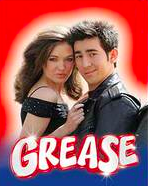 If this policy is meant to be general guidance for teachers (and contractors), shouldn’t it be constructed as such? Wouldn’t it be better to use affirmative language about supporting and advancing society through inclusive representations of race, religion, age, gender, or sexual orientation, instead of saying it simply won’t demean people on those grounds? As it is now, the policy seems more a declaration for the public, and a very general yardstick that teachers might be struck with should they violate its amorphous tenets. Since the school already has a practice of the principal approving the drama productions, it seems that process would presumably address content concerns, based upon reading the text and exploring productions and educational materials from other schools as aids, but in an open dialogue that would negate the need for future Right To Know inquiries. That said, I don’t favor shows going to any manner of public vote, and school boards shouldn’t decide play selection any more than they tell a coach what athletic plays to run.
If this policy is meant to be general guidance for teachers (and contractors), shouldn’t it be constructed as such? Wouldn’t it be better to use affirmative language about supporting and advancing society through inclusive representations of race, religion, age, gender, or sexual orientation, instead of saying it simply won’t demean people on those grounds? As it is now, the policy seems more a declaration for the public, and a very general yardstick that teachers might be struck with should they violate its amorphous tenets. Since the school already has a practice of the principal approving the drama productions, it seems that process would presumably address content concerns, based upon reading the text and exploring productions and educational materials from other schools as aids, but in an open dialogue that would negate the need for future Right To Know inquiries. That said, I don’t favor shows going to any manner of public vote, and school boards shouldn’t decide play selection any more than they tell a coach what athletic plays to run.
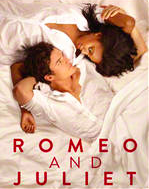 I wonder, however, where the concerns were when the South Williamsport High School did Grease and Once Upon A Mattress? Certainly there are those who would find the plot points about pregnancy out of wedlock in those shows both offensive and suggestive. Grease, frankly, is rife with suggestiveness, at least as I construe it, but I don’t happen to find it offensive; but it was more than enough to cause a school in Missouri, following a 2006 production, to cancel the next show on the schedule: The Crucible. What about Urinetown, produced at the school in 2009? All that talk of toilets and body functions must have offended the sensibilities of some in South Williamsport. The world’s most famous teen suicide story, Romeo and Juliet, was staged, but I wonder whether the school provided educational programs and material to students and the public about the dangers of romanticizing exactly the sort of behavior Shakespeare depicted?
I wonder, however, where the concerns were when the South Williamsport High School did Grease and Once Upon A Mattress? Certainly there are those who would find the plot points about pregnancy out of wedlock in those shows both offensive and suggestive. Grease, frankly, is rife with suggestiveness, at least as I construe it, but I don’t happen to find it offensive; but it was more than enough to cause a school in Missouri, following a 2006 production, to cancel the next show on the schedule: The Crucible. What about Urinetown, produced at the school in 2009? All that talk of toilets and body functions must have offended the sensibilities of some in South Williamsport. The world’s most famous teen suicide story, Romeo and Juliet, was staged, but I wonder whether the school provided educational programs and material to students and the public about the dangers of romanticizing exactly the sort of behavior Shakespeare depicted?
Was everyone sanguine with the following plot points, drawn from two synopses on the website of the licensing house Music Theatre International:
Soon after, attractive and seductive women appear and slowly surround him (“With You”). At first, Pippin is enjoying the romanticism, however, the mood quickly changes and the women bombard him. Pippin is pulled into numerous exotic orgies.
* * *
Audrey has forgotten her sweater, and Orin slaps her around for it…. Orin then pulls out a container of laughing gas, complete with a gas mask and puts it on himself to get high… Seymour feeds Orin’s body parts to the plant.
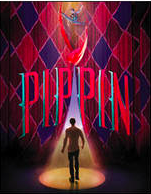 Obviously they passed muster, because Pippin and Little Shop of Horrors were produced at the school before Dawn Burch was hired. With this new policy, could any of the aforementioned shows be done again? Indeed, since there are – sad to say and sad as it is – still people who find homosexuality offensive, would LGBT life in any play or musical be precluded from the South Williamsport stage in deference to their reactionary sensibilities?
Obviously they passed muster, because Pippin and Little Shop of Horrors were produced at the school before Dawn Burch was hired. With this new policy, could any of the aforementioned shows be done again? Indeed, since there are – sad to say and sad as it is – still people who find homosexuality offensive, would LGBT life in any play or musical be precluded from the South Williamsport stage in deference to their reactionary sensibilities?
At the EdTA conference, I repeatedly counseled teachers to cultivate open and honest communication about their work with their department heads, their principals, even their superintendents if possible. Support for sports seems a given at our schools, but support for all of the arts, and it seems theatre in particular, must be developed over time – and started anew each time a key leadership position changes personnel.
When cancelations emerge from behind school doors into the public consciousness, locally and nationally, genuine rifts inside school communities and even entire towns are always possible, with long-lasting and detrimental effects on drama programs. Some schools, such as in Everett MA, do away with drama altogether, deciding a fair and open discussion about dramatic value is simply a nuisance – and therefore the program is as well. Yet are sports shut down when a student is seriously injured, publicly? No. In the case of football, it remains celebrated, even as data on traumatic brain injury mounts, because athletic prowess and competition is honored. It is the thought and expression of theatre that seems to be the dangerous undertaking in so many instances.
Another question I now field with some regularity is whether it’s wise to speak up publicly about these conflicts, bringing them broader attention than they might otherwise receive. My response is that it does carry risk, but if people believe in the power of theatre to not only entertain but educate, in the best interest of the participating students first and foremost, staying silent only allows repression to flourish, and for students to be consigned to the blandest, safest, time-worn work possible. And doesn’t Wicked (among countless works of literature) teach us about the dangers of people working behind the scenes, censoring, excluding, supposedly in the best interest of the community at large?
Having cited Wicked twice, let me finish with a few lyrics that hark back to L. Frank Baum’s Oz stories. I think this pair of couplets, devised by master satirist Tom Lehrer almost 50 years ago, speak simply and directly to slippery words like “offensive” and “suggestive.”
Everything is lewd,
I could tell you things about Peter Pan
And the Wizard of Oz, there’s a dirty old man.



